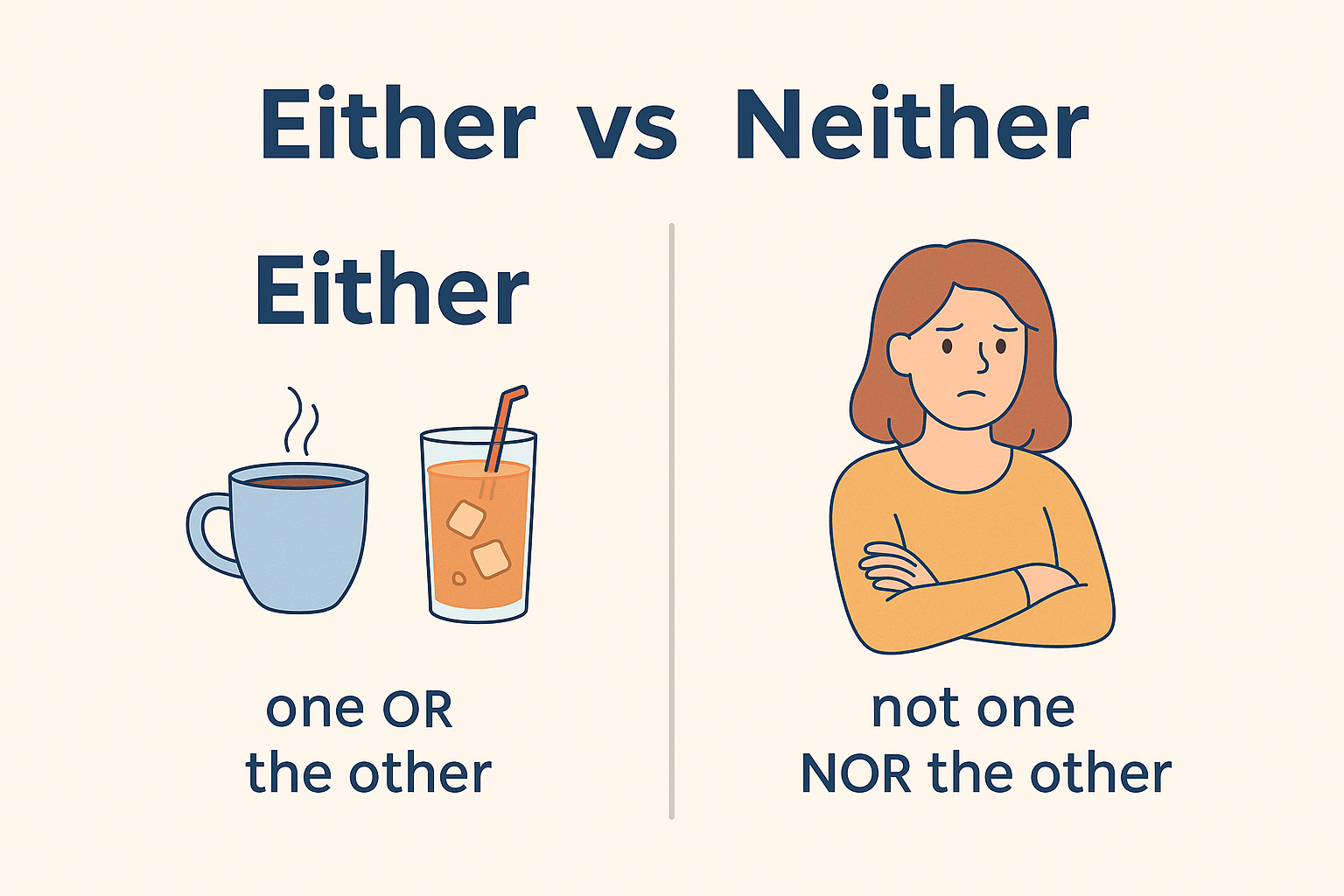Either vs Neither

“Either” vs “neither” may look similar, but they play very different roles in English grammar. These words often confuse both native and non-native speakers alike. In this guide, you’ll learn their proper usage, grammar rules, real-life examples, common mistakes, memory tips, and more.
Grammatical Explanation
1. Either
- Used to indicate one or the other of two things.
- It has a positive tone.
- Can function as a pronoun, conjunction, or adjective.
Examples:
- Either coffee or tea is fine. (conjunction)
- You can choose either of the dresses. (adjective)
- I don’t think either is suitable. (pronoun)
2. Neither
- Used to indicate not one nor the other of two things.
- It has a negative tone.
- Can also be a pronoun, conjunction, or adjective.
Examples:
- Neither the blue shirt nor the red one fits me. (conjunction)
- Neither answer is correct. (adjective)
- Neither of them came. (pronoun)
⚠️ Note: “Neither” is already negative. Don’t pair it with another negative like “not” (double negatives are incorrect in standard English).
Real-Life Example of Either vs Neither
- Either you study now, or you’ll regret it later.
- You can sit on either side of the table.
- Neither of the explanations made sense.
- Neither John nor Mary attended the class.
Common Mistakes to Avoid in Either vs Neither
| Incorrect | Correct | Explanation |
|---|---|---|
| I don’t want either. | I want neither. | Use “neither” for rejecting both. |
| Neither of them are going. | Neither of them is going. | “Neither” is singular. |
| Either of the cars are good. | Either of the cars is good. | “Either” is singular. |
| I didn’t see neither of them. | I didn’t see either of them / I saw neither of them. | Avoid double negatives. |
Memory Tips
- Either = One → Think: “E” for “Either = Either one.”
- Neither = None → Think: “N” for “Neither = Not one.”
- Neither always goes with nor; either goes with or.
See also: Your vs You’re – A Common Grammar Pitfall
For more detailed grammar rules, check Grammarly’s Guide on Either vs. Neither
Conclusion
Both “either” and “neither” deal with choices between two options but with opposite meanings. “Either” is about selecting one, while “neither” is about rejecting both. Once you master this distinction, your writing and speaking will become clearer and more precise.